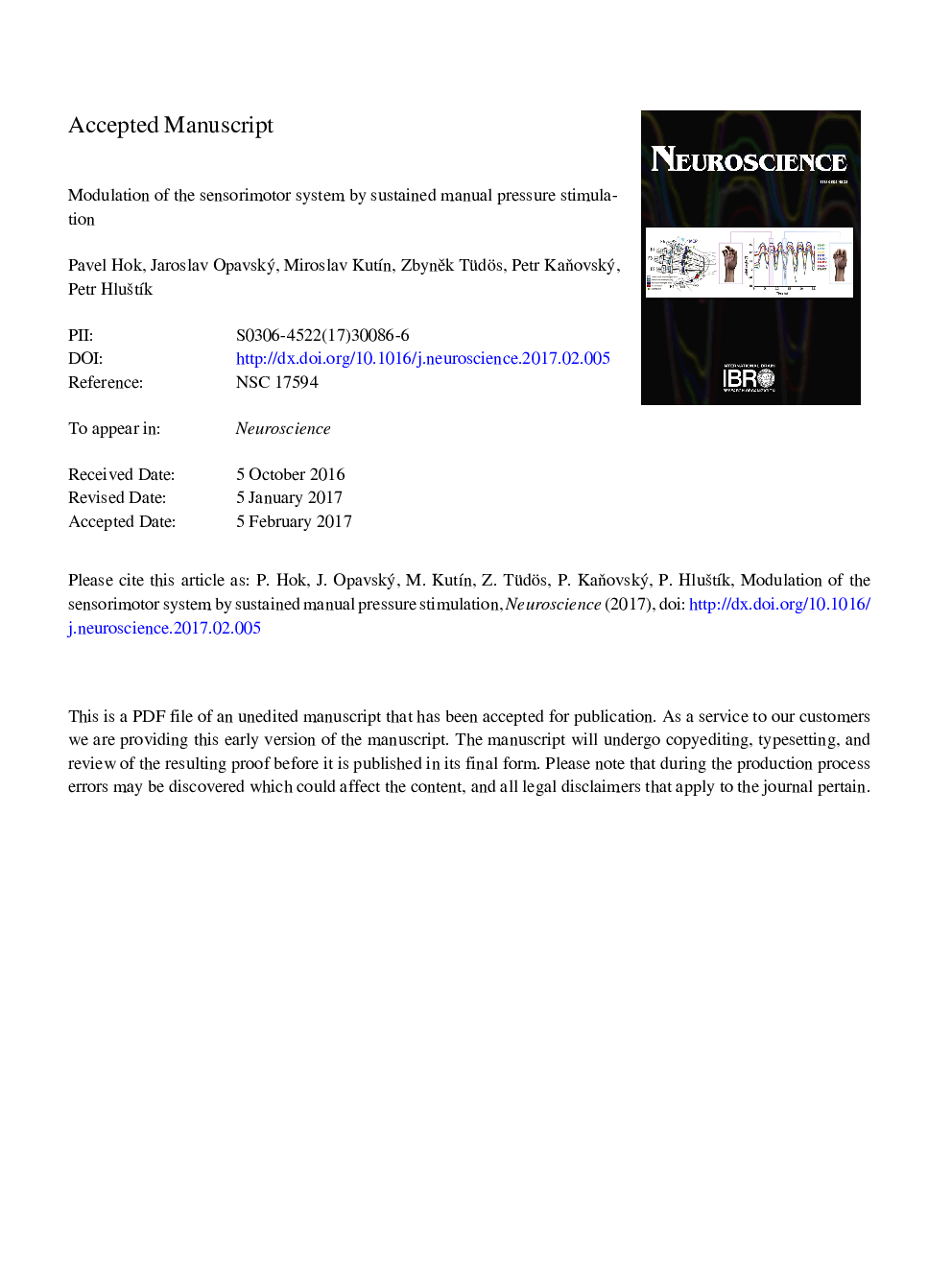| Article ID | Journal | Published Year | Pages | File Type |
|---|---|---|---|---|
| 5737799 | Neuroscience | 2017 | 33 Pages |
Abstract
In Vojta physiotherapy, also known as reflex locomotion therapy, prolonged peripheral pressure stimulation induces complex generalized involuntary motor responses and modifies subsequent behavior, but its neurobiological basis remains unknown. We hypothesized that the stimulation would induce sensorimotor activation changes in functional magnetic resonance imaging (fMRI) during sequential finger opposition. Thirty healthy volunteers (mean age 24.2) underwent two randomized fMRI sessions involving manual pressure stimulation applied either at the right lateral heel according to Vojta, or at the right lateral ankle (control site). Participants were scanned before and after the stimulation when performing auditory-paced sequential finger opposition with their right hand. Despite an extensive activation decrease following both stimulation paradigms, the stimulation of the heel specifically led to an increase in task-related activation in the predominantly contralateral pontomedullary reticular formation and bilateral posterior cerebellar hemisphere and vermis. Our findings suggest that sustained pressure stimulation of the foot is associated with differential short-term changes in hand motor task-related activation depending on the stimulation. This is the first evidence for brainstem modulation after peripheral pressure stimulation, suggesting that the after-effects of reflex locomotion physiotherapy involve a modulation of the pontomedullary reticular formation.
Keywords
VASPMRFSFOBOLDCpGMNIMRIstandard deviationblood oxygenation level-dependentphysical stimulationMagnetic resonance imagingfMRIfunctional magnetic resonance imagingMovementBrainstempontomedullary reticular formationCerebellumvisual analog scaleBrodmann’s areaMontreal Neurological InstituteCentral pattern generators
Related Topics
Life Sciences
Neuroscience
Neuroscience (General)
Authors
Pavel Hok, Jaroslav Opavský, Miroslav KutÃn, ZbynÄk Tüdös, Petr KaÅovský, Petr HluÅ¡tÃk,
